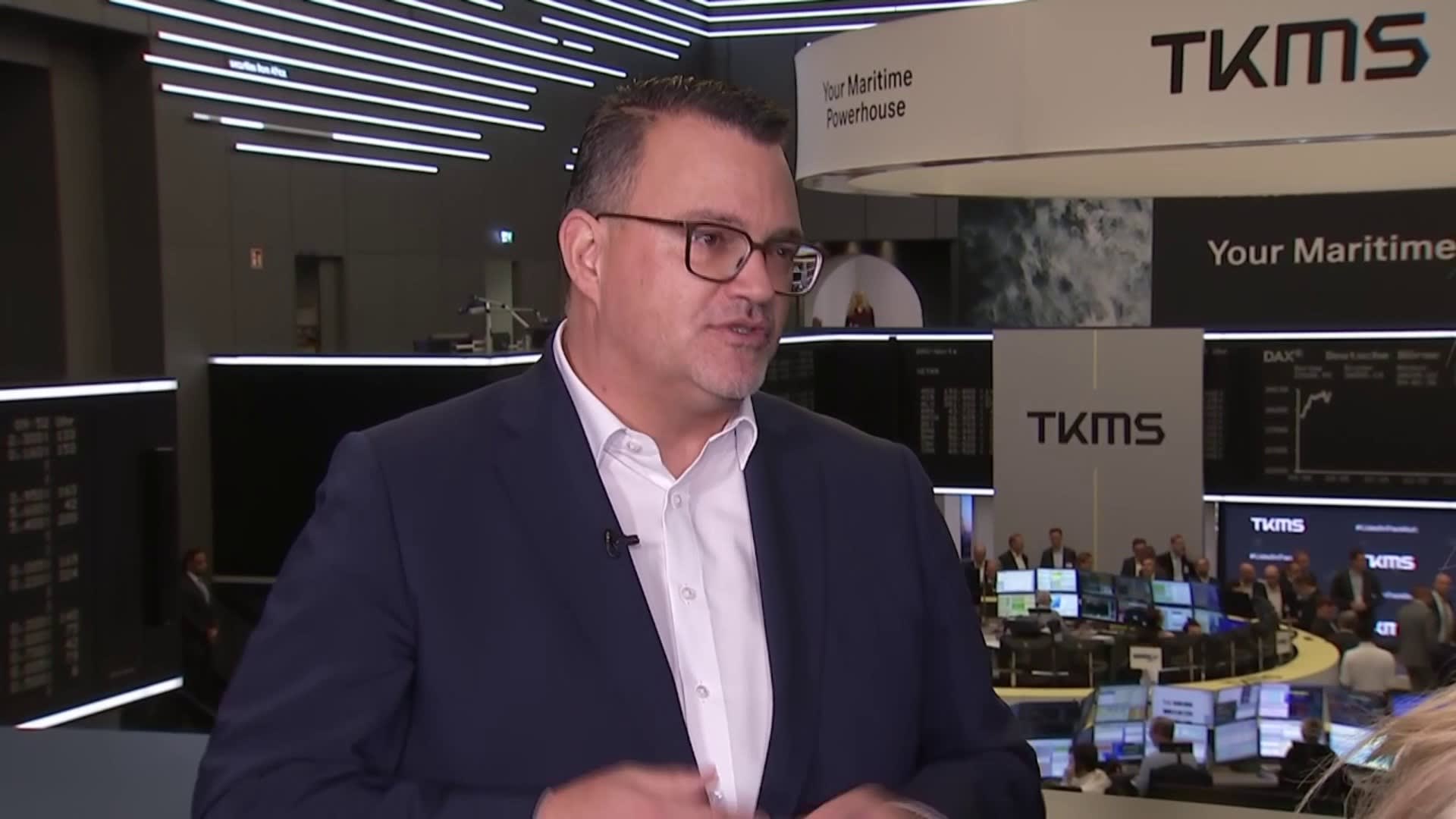Thyssenkrupp’s Warship Arm TKMS Launches $4.4 Billion Frankfurt IPO Amid Europe’s Defense Spending Boom
Thyssenkrupp’s Warship Arm TKMS Launches $4.4 Billion Frankfurt IPO Amid Europe’s Defense Spending Boom
By
Rachel Steinberg
Last updated:
October 21, 2025
First Published:
November 30, 2025

Photo: CNBC
Germany’s Thyssenkrupp Marine Systems (TKMS) officially set sail as an independent public company, debuting on the Frankfurt Stock Exchange with shares priced around €60 ($70) each, valuing the firm at approximately €3.8 billion ($4.4 billion). The long-anticipated IPO marks Thyssenkrupp’s first major spinoff in years and positions TKMS at the center of Europe’s rapidly growing defense industry.
The company’s separation comes as nations across Europe ramp up military spending amid rising geopolitical tensions. With a record €18.6 billion order backlog, TKMS is now preparing to meet surging demand for advanced submarines and warships—an industry that’s expected to see exponential growth through the next two decades.
Europe’s Naval Resurgence
As Europe intensifies its focus on defense autonomy, demand for sophisticated naval vessels has skyrocketed. Germany currently operates just six active submarines, with six more on order, a sharp contrast to the U.S. Navy’s 71 and Russia’s estimated 64. TKMS hopes to close that gap, supplying cutting-edge submarines that can stay submerged for weeks at a time.
“The global security landscape has changed dramatically,” said CEO Oliver Burkhard in an interview. “We’re seeing historic investment in defense across Europe, and naval capabilities are central to that transformation.”
TKMS is already running at near-full capacity, with contracts that will keep its shipyards busy until at least 2040. Each submarine takes between five and fifteen years to build, depending on the complexity of the design and client requirements.
Innovation and Expansion
TKMS isn’t just about steel and shipyards—it’s also becoming a leader in advanced military technologies. The company develops sonar systems, autonomous underwater drones, and sophisticated control software—capabilities Burkhard described as the “jewel in the chest box” of TKMS.
The IPO proceeds will fuel expansion in production facilities and research programs. TKMS has doubled its shipyard capacity in recent years and now operates two major naval construction sites capable of producing state-of-the-art vessels for NATO partners.
“Our growth strategy is cautious but focused on profitability,” Burkhard said. “We have the facilities, the workforce, and the technological edge to deliver on Europe’s rearmament agenda.”
Investor Confidence and Market Impact
The IPO drew strong investor demand, reflecting growing confidence in Europe’s defense sector. Thyssenkrupp will retain a 51% stake, ensuring long-term strategic control, while new investors gain exposure to one of the few pure-play naval defense firms in Europe.
The broader market echoed the optimism. Shares of Thyssenkrupp rose 7.3%, while the Stoxx Europe Aerospace and Defense Index jumped 2.7% by market close. Other defense names also rallied—Renk climbed 6.7%, Hensoldt surged 7.9%, and Rheinmetall gained nearly 6%.
“This IPO hit the market at the perfect time,” said Gareth McCartney, global co-head of equity capital markets at UBS. “Investors are sitting on substantial liquidity and are keenly focused on sectors linked to defense and infrastructure. TKMS fits both narratives perfectly.”
A Strategic Bet on Europe’s Future
With defense budgets across Europe rising at record pace—Germany alone has pledged €100 billion to modernize its armed forces—TKMS stands to benefit from a long-term structural shift in security spending.
Roughly 90% of TKMS’s supply chain remains within Europe, most of it in Germany, ensuring stability and resilience against global disruptions. The company also plans to expand its international partnerships, including potential collaborations with allies like Japan and Australia, to develop next-generation maritime systems.
As Europe continues to rebuild its defense capabilities for a new geopolitical era, TKMS’s public debut signals both investor confidence and industrial readiness. For Thyssenkrupp, it represents a successful transformation—spinning off a legacy business that’s now charting its own course in the booming global defense market.
In an environment defined by uncertainty and rearmament, TKMS’s launch underscores one thing clearly: Europe’s defense industry is back, and investors are paying attention.
Popular articles
Subscribe to unlock premium content
Gilded Holidays in Fashion

How HBO Max Used the Power of Limited Series to Redefine Streaming Competition and Challenge Netflix’s Binge Culture

How Stranger Things Revolutionized Netflix and Redefined Streaming Entertainment

Gilded Holidays in Fashion

How HBO Max Used the Power of Limited Series to Redefine Streaming Competition and Challenge Netflix’s Binge Culture

Gilded Holidays in Fashion









